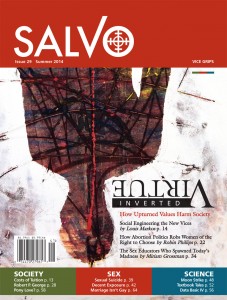In my 2011 series ‘The Canterbury Letters‘ (of which I have only recently revealed myself to be the author), I made some observations about Christian parenting that may be helpful as a follow-up to my post ‘9 Things I Wish Someone Has Told Me About Parenting Teenagers.’ Below is what I wrote:
Many Christian parents have taught their sons and daughters all the correct doctrine, yet because they have not lived it out in front of their children, when the children grow up they end of walking away from the faith. The parents’ hypocritical lifestyle has failed to convince the children that the faith is lovely (something worthy of adoration), and hence the youth fall prey to rival images of the good life. I have even seen people turn to rival images of the good life while still believing cognitively that the faith is true. But while there are many examples of youth abandoning a faith they know is true because their hearts have been lured by rival images of the good life, how many times have you heard of it working the other way round? How many young people do you know who have abandoned the worldview of Christianity without first having been enticed by a rival vision of the good life? Not very many, if any, and here’s why: our center of gravity is not the mind, but the heart. It is the heart which sends us the message, “This is the good life,” or “This is not the good life.” Now the lifestyle in the Christian home is crucial here, since our behavior in front of our children will unconsciously inscribe one of these two messages in the hearts of our children. The hundreds of little things we do with our kids from playing with them to disciplining them to just patiently listening to them talk, all help to reinforce that this is the good life. What is being reinforced is pre-reflective automated desires that only afterwards take form in abstract thought.
This is because the truth of the gospel is not an abstract or purely intellectual truth, but an engaged, embodied, and particular truth – something that must be done and not merely talked about. Now if the lifestyle within the Christian home needs to take account of this love-shaped anthropology, then it seems that the life in the church should do so as well. But this can never happen as long as we are subscribe to the type of cognitivist anthropology that underpinned so much of your second to last letter.
This has a profound impact on our apologetics. Our apologetics must not be merely intellectual, occupied with the Big Questions of the universe and its origins. We must also engage in “cultural apologetics”, working to transform the rhythms and practices of our culture, not least the culture of our Christian communities and churches, to reflect the beauty and desirability of Christ. Aleksandr Solzhenitsyn once noted, “In vain does one repeat what the heart does not find sweet.” It is not good enough simply to prove to someone that Christianity is true; if we are to have an impact for Christ we must also show that the faith is sweet, that Christianity is not only true, but lovely and desirable.
With that in mind, I’d like to close with a quotation from Joseph Ratzinger, now Pope Benedict XVI, from his 2002 message, ‘The Feeling of Things, the Contemplation of Beauty.’ It relates indirectly to some of these same themes:
Being struck and overcome by the beauty of Christ is a more real, more profound knowledge than mere rational deduction. Of course we must not underrate the importance of theological reflection, of exact and precise theological thought; it remains absolutely necessary. But to move from here to disdain or to reject the impact produced by the response of the heart in the encounter with beauty as a true form of knowledge would impoverish us and dry up our faith and our theology. We must rediscover this form of knowledge; it is a pressing need of our time.…
The encounter with the beautiful can become the wound of the arrow that strikes the heart and in this way opens our eyes, so that later, from this experience, we take the criteria for judgment and can correctly evaluate the arguments. For me an unforgettable experience was the Bach concert that Leonard Bernstein conducted in Munich after the sudden death of Karl Richter. I was sitting next to the Lutheran Bishop Hanselmann. When the last note of one of the great Thomas-Kantor-Cantatas triumphantly faded away, we looked at each other spontaneously and right then we said: “Anyone who has heard this, knows that the faith is true.”
The music had such an extraordinary force of reality that we realized, no longer by deduction, but by the impact on our hearts, that it could not have originated from nothingness, but could only have come to be through the power of the Truth that became real in the composer’s inspiration.
Further Reading:
- Nine Things I Wish Someone Has Told Me About Parenting Teenagers
- What Science Has to Say about Heavy-Handed Parenting
Three Ways You Can Support This Blog
Get a copy of my book……..Buy our Essential Oils…………..Subscribe to Salvo




